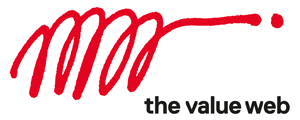Thursday, May 2, 2024
Americas
8:00 – 9:30 AM PDT/Los Angeles
10:00 – 11:30 AM CDT/Chicago
11:00 – 12:30 PM EDT/New York
EMEA
16:00 – 17:30 BST/London
17:00 – 18:30 CEST/Paris
18:00 – 19:30 EEST/Helsinki
18:00 – 19:30 EAT/Nairobi
COACH: TVW Board Member & Graphic Facilitator Peter Durand
“It is difficult to make predictions, especially about the future.”
— Attributed to many people…
from the Nobel prize-winning Quantum Physicist Niels Bohr
to legendary Baseball Player (and Philosopher) Yogi Berra
This is a major reason why many teams want to jump straight from identifying a problem or opportunity to problem-solving or “solutioning” without spending time in the Scan Phase of an issue.
We are often tasked with helping clients anticipate and build a resilient model for the future. Paradoxically, clients often push back on the idea of conducting future research or imagining issues outside of their work domain.
Foresight research is a systematic process for identifying emerging signals, analysing trends, and developing potential scenarios to inform strategic decision-making. (Learn more in this document about the origins and history of the field of foresight and futurism.)
Through this process, organisations can gain a better understanding of possible futures and take proactive steps to shape outcomes in a way that aligns with their goals and values.
Future scanning with groups has several benefits:
-
Diverse Perspectives: Engaging a group in future scanning activities brings a variety of viewpoints and expertise to the table, leading to more robust insights.
-
Collaborative Innovation: Working as a group fosters collaboration, encouraging the co-creation of ideas and solutions that consider a broader context.
-
Shared Ownership: Involving multiple stakeholders in future scanning helps build consensus and shared ownership of the outcomes, increasing buy-in and support for future-focused initiatives.
Are you a facilitator aiming to enhance your skills in planning and designing collaborative design workshops?
If you’ve ever faced challenges helping groups examine weak signals to anticipate future trends — or to simply escape the Tyranny of the Present — our virtual workshop is made for you.
Join us and improve the art of facilitating future scanning sessions with leaders and participants.
Photo by Austin Chan on Unsplash
Facilitating future scanning activities with groups can pose several challenges:
-
Group Dynamics: Differing opinions and perspectives can lead to conflicts or difficulty reaching consensus.
-
Maintaining Focus: Future scanning activities can become abstract or overly theoretical, making it challenging to maintain focus and direction.
-
Limited Engagement: Some participants may struggle to engage or contribute meaningfully, resulting in less effective outcomes.
― Buckminster Fuller
As Solution Designers and Facilitators, we are tasked to transform workshops into dynamic, engaging sessions that go beyond routine meetings. Curating such design work in complex adaptive systems requires helping leaders engage with the design process.
Our live, collaborative online workshop is designed to equip facilitators with the skills and tools to navigate the complexities of future scanning with groups. Here are the benefits of joining our workshop:
-
Enhanced Facilitation Techniques: Learn methods to effectively manage group dynamics, resolve conflicts, and maintain focus during future scanning activities.
-
Hands-On Practice: Participate in interactive exercises that provide practical experience in facilitating future scanning sessions with groups. Gain confidence in guiding participants through signal detection, trend analysis, and scenario development.
-
Strategic Impact: Discover how to use future scanning to drive innovation and strategic transformation in your client’s organisation. Learn how to turn insights from future scanning into actionable plans that can guide your group’s journey toward a desired future.
-
Acquire skills to align objectives, manage conflicting priorities, and facilitate strategic planning.
-
Turn complex discussions into clear, actionable plans that drive success.
-
Recognize and work with different leadership styles during the planning phase.
-
Tailor your approach to effectively engage and leverage the strengths of each leader.
-
Promote a collaborative planning environment.
Date: Thursday, May 2, 2024
Time: 11:00 AM EST (17:00 CET)
Location: Virtual (Link will be provided upon registration)
Who Should Attend
-
Aspiring and established Collaboration Designers and Facilitators
-
Business professionals seeking to enhance client interactions
-
Anyone involved in Group Facilitation, Communications, or Graphic Recording, whether inside or outside a larger firm or network
SUGGESTED MATERIALS: A sketchbook, white wall, flipchart, iPad, and simple drawing tools. Plus, your fanciest strategic thinking hat.
Your Host: Peter Durand

Peter Durand is an Artist, Educator, and Graphic Facilitator in Houston, Texas (USA). He worked his first MG Taylor DesignShop® in 1996, founded Alphachimp in 1998, and has been involved in growing the practice of Graphic Recording and Facilitation ever since. Since 2007, he has served as a Facilitator for the MGT-designed NavCenter at Vanderbilt University Medical Center in Nashville, Tennessee, and worked with talented clinicians, administrators, faculty, students, and patients in one of the nation’s leading healthcare networks. As an easily distracted creative person, Peter is known to experience difficulty planning his next meal and showing up at the airport with government-issued identification, let alone successfully planning for the future.
For more details and to contact Peter, click here.
Subscribe to Learn About Upcoming Events


